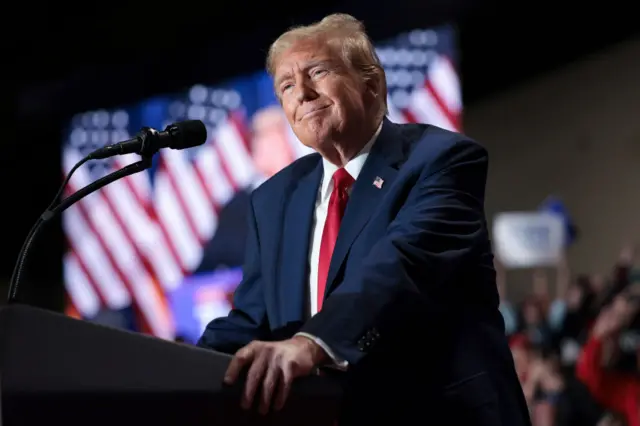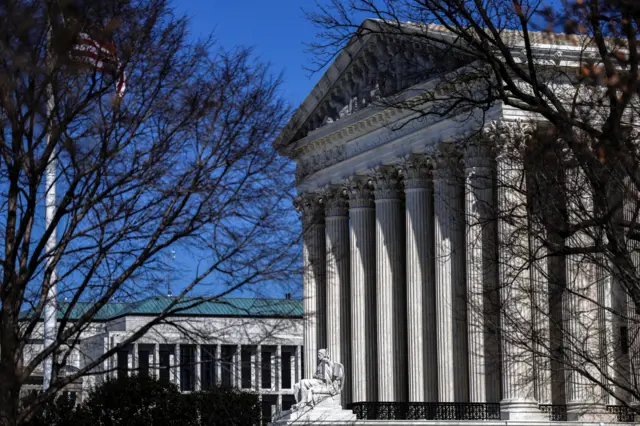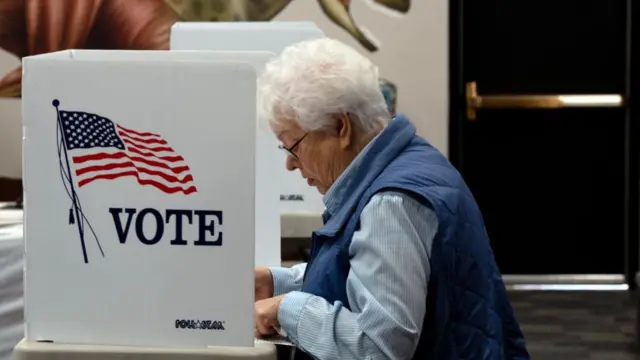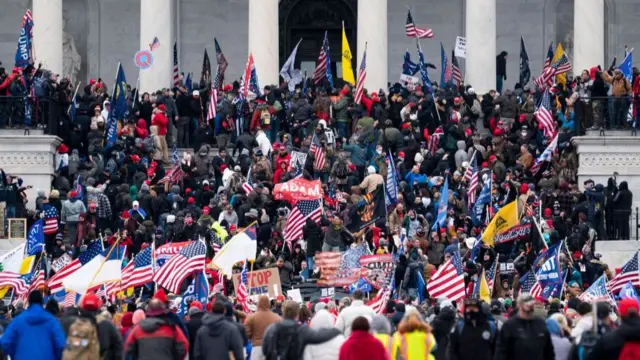
Colorado voters were ready for this outcomepublished at 15:45 GMT 4 March 2024
 Emma Vardy
Emma Vardy
Reporting from Colorado

This won’t come as a surprise to many voters in Colorado.
Many here expected the Supreme Court to overturn Colorado’s ruling, and in fact it will be welcomed by some voters on both sides of the political divide.
At an ice hockey game in Denver, several ardent anti-Trump voters tell us that despite despising what he stands for, they still don’t believe people should be denied the right to vote for him if they choose to.
“I think we kick ourselves in the booty by taking someone off the ballot, why force someone off a ballot,” shouts one woman in between cheers for the hockey.
“I’m not a Trump fan, but the game still has to be fair. And if you win when it’s not fair, then you haven’t won.”





